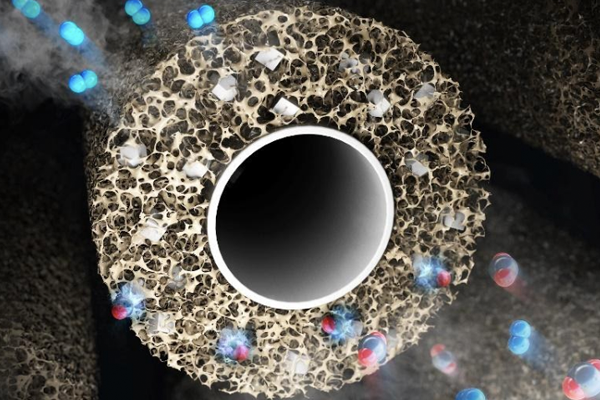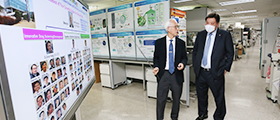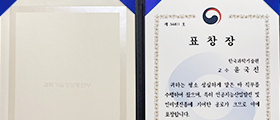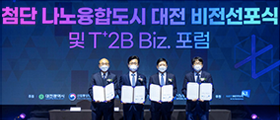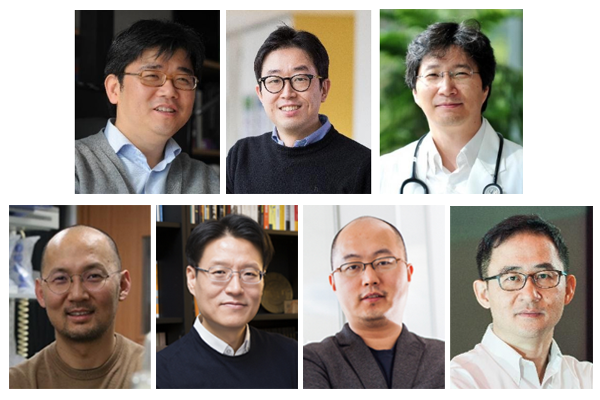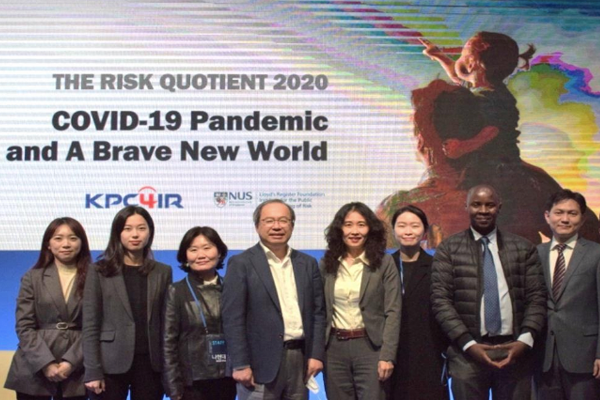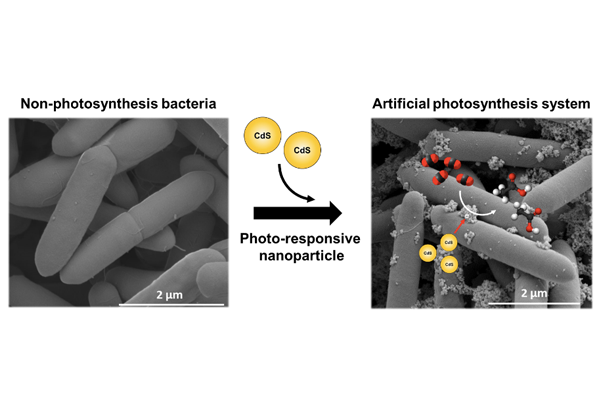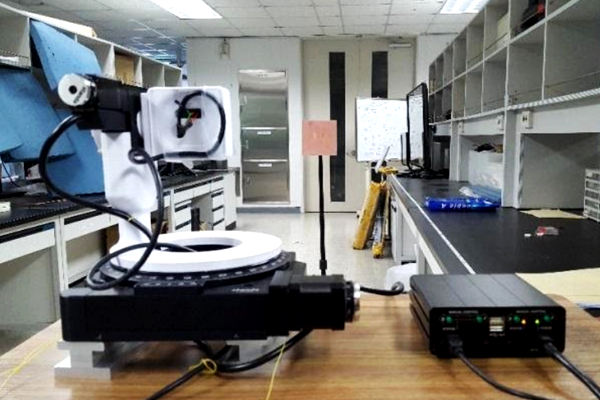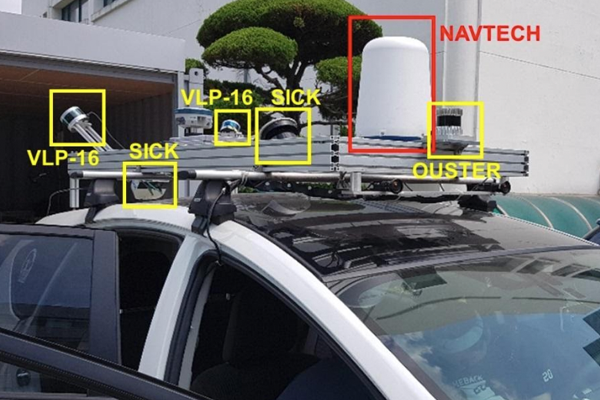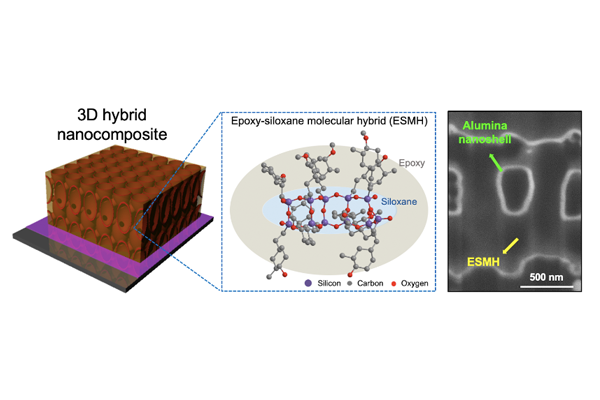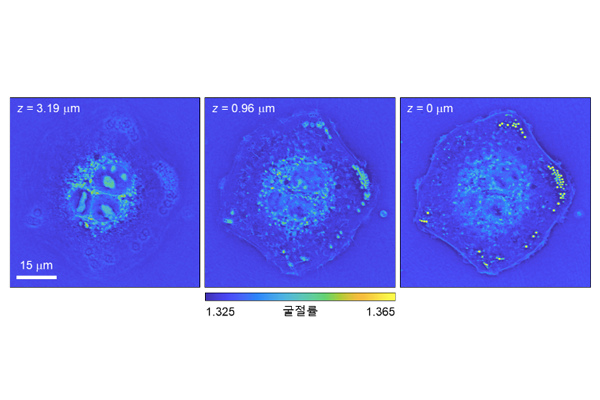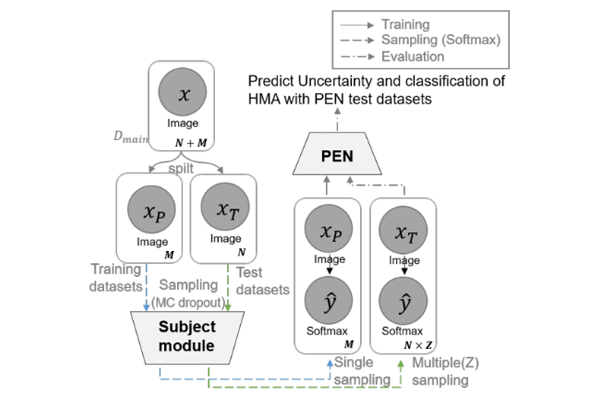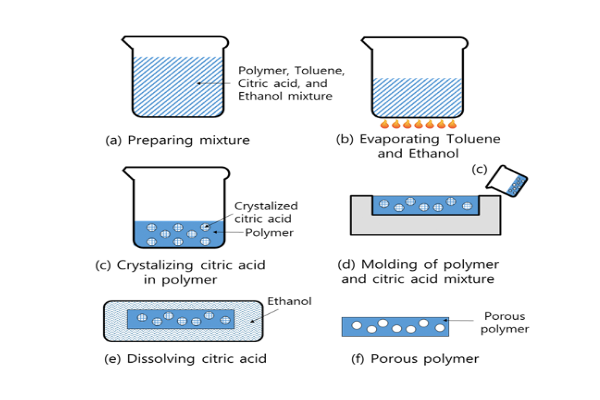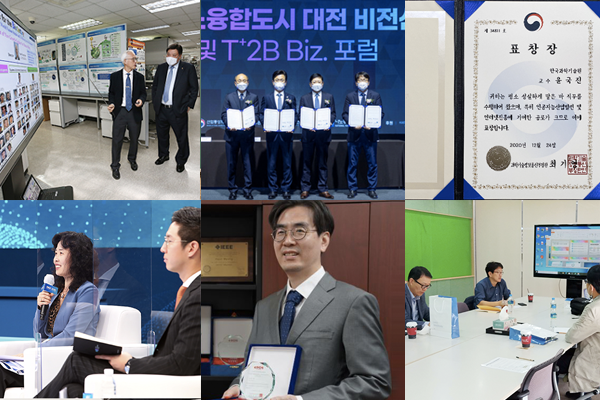- KAIST MatriX
- The official newsletter of KAIST Institutes
- kmatrix.kaist.ac.kr
-
share newsletter
Fiber Sorbents for Energy-Efficient CO2 Capture
Prof. Koh’s group conceived a feasible route for developing a scalable platform for CO2 capture (including direct air capture) using metal-organic frameworks. MOF-based fiber sorbents show high CO2 uptake and low pressure drop for long-term cyclic operation in direct air capture mode....read more
Featured Activities
to support regional Nano-Convergence Businesses between KINC, NNFC, NTRA and DAEJEON METROPOLITAN CITY
-
Introduction to KI
KI for Health Science and Technology
KI for Health Science and Technology (KIHST) is a field that puts in effort to foster a future growth industry along with Information Technology. Though several departments at KAIST have worked on state-of-the-art Health Science Technology and advances in research skills, those efforts were not enough to create novel value or propose a vision to explore new markets. KIHST aims to provide a new platform with the vision of 1. Platform for the future medical market, 2. KAIST's multidisciplinary environment, and 3. Intermediate Medical Engineering.
-
Research Highlight
KPC4IR hosted an international online conference, 'The Risk Quotient 2020: COVID-19 Pandemic and A Brave New World'
The KAIST KPC4IR (Korea Policy Center for the 4th Industrial Revolution) and the Lloyd's Register Foundation Institute for the Public Understanding of Risk (IPUR) at the National University of Singapore (NUS) jointly hosted the Risk Quotient (RQ) 2020 edition. The conference focused on digital innovation accelerated by COVID-19, structural changes in the economy, and response strategies through the 4th Industrial Revolution technologies. Leading global experts from academia, the public, and industry, including NUS, Tsinghua University, the University of Tokyo, the Korea Educational Development Institute, the Korea Information Society Development Institute, and Kakao Mobility, were invited to examine significant challenges to help Asia navigate the post-COVID-19 and Fourth Industrial Revolution (4IR) eras.
-
Research Highlight
Eco-friendly C1 gas conversion technology using microbe-photo-responsible nanoparticle hybrid system
Prof. Cho’s group has developed an artificial photosynthesis system using a non-photosynthesis microorganism attached to photo-responsive nanomaterials.
-
Research Highlight
Radar-Assisted Channel Measurement System for Beyond 5G Wireless Communication in Sub-THz Band
Prof. Gye-Tae Gil’s research team at the KI IT Convergence Lab. developed a novel technique for estimating the path loss parameter of a wireless channel using a monostatic radar, and showed the feasibility of the technique through a channel measurement campaign in a real indoor environment.
-
Research Highlight
Radar-based Navigation for All-weather Autonomous Driving
Radar is a widely adopted sensor for automotive and military purposes; however, few studies have focused on using radar as the dominant navigational sensor. Unlike Light Detection and Ranging (LiDAR) and cameras, radar is less sensitive to light condition and even robust under heavy rain or dust.
-
Research Highlight
Ultrahard, Yet Flexible Hybrid Nanocomposite Reinforced by 3D Inorganic Nanoshell Structures for Flexible Protective Film
Prof. S. Jeon, B.-S. Bae, S.M. Han, and J.-W. Hong’s groups have developed a nontrivial type of nanocomposite combining organic-inorganic (O-I) hybrid materials with 3D oxide nanostructure. The 3D hybrid nanocomposite film simultaneously achieves superior hardness, optical transparency, and flexibility.
-
Research Highlight
Development of semiconductor quantum dot symmetry control technology
Prof. Cho's group succeeded in controlling the triangular symmetry of nitride semiconductor quantum dots for the first time by using a three-dimensional nano-pyramid structure and a self-limited growth method. With precise control of the symmetry of the quantum dots, it would be useful for developing polarization-entangled photon pair emitters.
-
Research Highlight
New method enables holographic imaging without interferometry
Prof. YongKeun Park’s group has developed a novel method for non-interferometric holographic imaging. The method, based on Kramers-Kronig relations, provides holographic images of biological specimens using an optical microscope simply by controlling the illumination beam.
-
Research Highlight
Accessing human uncertainty via the lens of deterministic neural networks
Prof. Sang Wan Lee’s team explored the possibility of accessing human uncertainty via the lens of deterministic neural networks. Medical image diagnosing tests with 64 physicians showed that an ensemble neural network has the capacity to perform human uncertainty inference.
-
Research Highlight
Reinforcement Learning Algorithm for Batch Chemical Process Control
Haeun Yoo, a member of Prof. Jay H. Lee’s group, has proposed a phase segmentation approach and modified deep deterministic policy gradient algorithm for batch process optimal control under uncertainty.
-
Research Highlight
Breathable polymer membranes for wearable devices
Prof. Young-Ho Cho’s group has developed a new fabrication technique for breathable polymer patches that rapidly wick sweat away from the skin. The technique could reduce the redness and itching caused by wearable biosensors that trap sweat beneath them.
-
Activity
Featured Activities in Spring 2021
Visitor KIR 2020.09.01 Dongwhan Min from Uber visited as an invited speaker KIAI 2020.09.23 Director of Science, ICT and Future HR Policy Bureau at Ministry of Science and ICT visited to introduce research achievements of KIAI KIB 2020.11.03 CEO Jung-Jin Seo from Celltrion visited to discuss future R&D cooperation on biotechnology KIR 2020.12.01 Jinhan Lee

291 Daehak-ro Yuseong-gu Daejeon, 34141, Republic of Korea
Partnered with KAIST Breakthroughs and KAIST Compass




